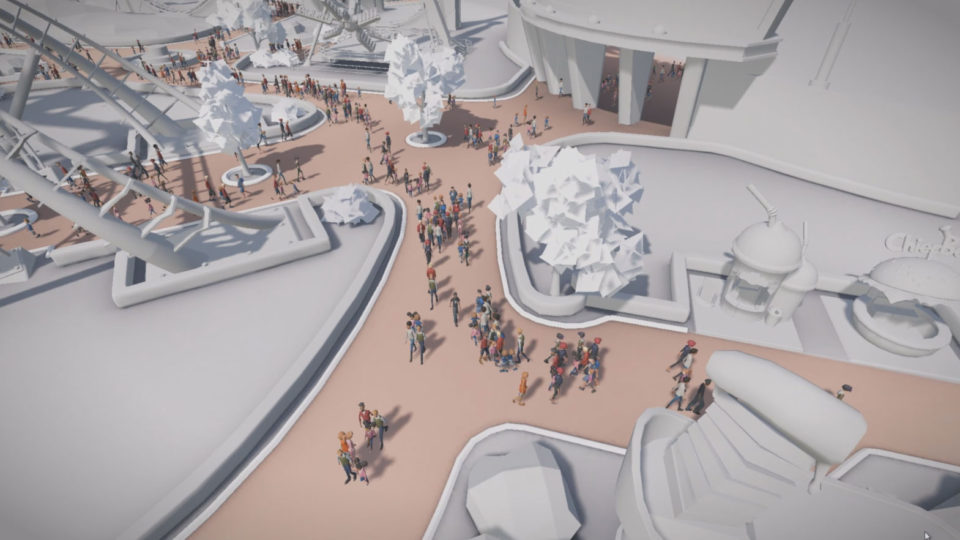If you have ever been to a theme park or large carnival, you know first hand how crowded such places can be. As a game developer, have you have tried to tackle simulating something like that in a game? Frontier Development’s Principal Programmer Owen McCarthy Traditional has some pointers. In a talk at Casual Connect Europe in London entitled Simulating 10,000 Guests in Planet Coaster, Owen gave an overview of how Frontier did it in Planet Coaster. They were able to successfully simulate over 10,000 park guests in a player-created environment by using potential field research based on continuum crowds. In the presentation, he takes a deep dive into the studio’s development process to show how they took this system from prototype to full production. See the full session below.
DOWNLOAD SLIDES
Owen McCarthy is Principal Programmer at Frontier Developments, having worked there for the past nine years. Owen generally works on Core Tech Systems, which includes any system that high level gameplay code will use. While at Frontier, Owen has worked on such things as navigation systems, physics systems, signal processing and water simulations.
Owen began working at Frontier Developments six months after completing their Masters degree in Game Development at the University of Hull. He had been spending time with his brother in Ireland, had flown over to Cambridge to interview for the job, and was offered the job while on the train back to the airport. Two weeks later he moved to Cambridge and began his career.
Every Project Is Different
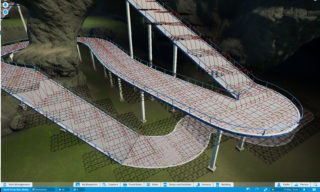
One aspect of this job that Owen particularly appreciates is the fact that every new project is completely different and brings new challenges. “I constantly have to learn new things and relearn old things I’d forgotten and solve different problems..” The people he works with are another enjoyable aspect of the the job. Owen emphasizes that people who make games for a living are passionate and highly talented. In fact, he claims that most of the time his work doesn’t feel like a job; it is like making games with friends. “This makes the people dynamic and the work environment very fun and exciting.”
Developing a Career in Games
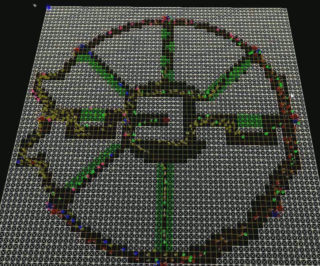
His first computer, which he received at about age fourteen or fifteen, was a Pentium1 a 133 with mhz clock rate and an ATI rage pro. From there he began learning how the operating system worked, fixing broken computers for his friends and writing little scripts. He then began making little games in Dark Basic and learning about game loops and moving objects around.
Owen chose to study theoretical physics and computer science for his degree. By his final year he had decided to make games as his career so he switched to pure computer science. To anyone interested in making games as a career he suggest this: “When playing a game, try to think about how it might be working under the hood. What logic is used to make certain mechanics happen? That thought process will stay with you through your career and help greatly. Get a computer and start coding anything and everything. If using a modern engine don’t forget to think about the underlying systems too, and try and make something crazy-fun.”

From Research to Game
Owen’s creative process starts with research. He looks at academic papers, figures out if they are possible in real-time and then decides what the best solution will be for the problem he is trying to solve. They then come up with two plans, a master plan that may be a little risky but has a big payoff, and a fallback plan to use if the master plan doesn’t work as intended. They admit, “There is a little bit of instinct involved in this and mine hasn’t failed me yet…”

The inspiration for Owen’s designs usually comes from tech research videos, other games, movies or something similar. He asks, “Can we make something in realtime that approaches the realism of something you’d see in a movie? Or can we take this really impressive thing a game did on a single character and do it on tens or hundreds at once?” Owen would be especially interested in creating an immersive first-person puzzle game.
The greatest challenge in game development, according to Owen, is always trying to improve on what you’ve done in the past. Sometimes this seems like an impossible challenge, but the rewards come when you actually do overcome it. And the other really rewarding time is when, after all the work, the game is finally released and you can see the audience’s reaction to it. He relates that today, with Twitch and YouTube, this is more rewarding than ever because you get feedback directly from the players. You can watch them streaming, discussing and playing the game you’ve been working on for the past few years.

When creative blocks occur, Owen handles them with sensory overload. He may put on music or watch a fire flickering, fireworks exploding or go where he can watch water rushing. He lets all the stimuli take over in order to stop thinking about the problem. And sometimes his subconscious then figures out the problem.
Challenges and Rewards with Planet Coaster
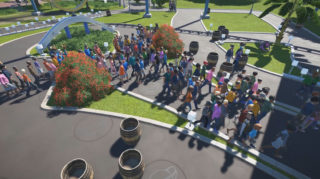
The most exciting time in his career by far, Owen claims, was working on this crowd simulation in Planet Coaster. “It was a system I wrote from scratch on my own and took it from research to prototype to production to shipping. We had this amazing pre-production/experimentation phase before Planet Coaster and I had an idea of what I wanted to try and start from there. Proving I could make the system permanent was a fun process, and involved some testing and a gut feeling I could do it. The end result of seeing 10,000 guests navigate their way around a park was a pretty amazing feeling and when it shipped it got lots of great feedback from the community!”

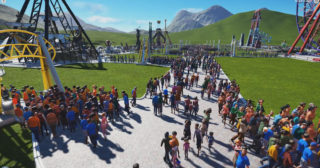
Comments


